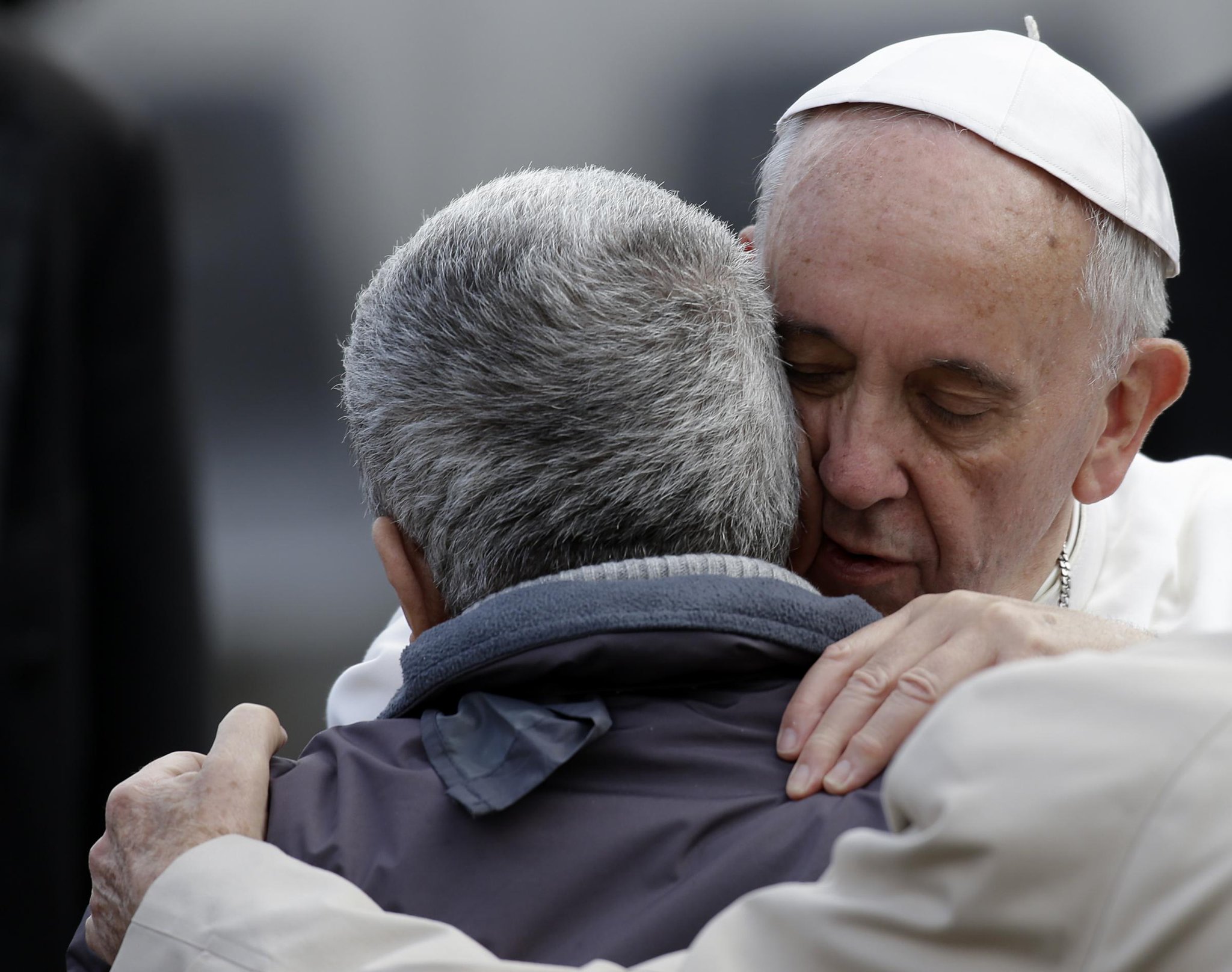World day of the poor
The Pope’s message for the First World Day of the Poor that will be celebrated on November 19, is an invitation to “sharing”, not to love with words but with facts, as Francis of Assisi. The poor are not just the beneficiaries of occasional volunteer work. The “myriad ways” of poverty and the “ostentatious wealth” of the few privileged ones. A week of initiatives in parishes, in homes and in neighbourhoods. Pope Francis will eat lunch with no less than 500 poor people

Contemporary societies don’t know how – or don’t intend to – identify poverty in clear terms. Nonetheless its manifold faces call us into question every day – men, women, children, insulted and offended – before whom our “ostentatious wealth” produces nothing but indifference. Pope Francis enlists all of those faces and – in the message for the First World Day of the Poor – calls upon the whole Christian community to assume the style of sharing taught by Francis of Assisi, starting from the meeting with the leper. With no “ifs” or “buts” or “maybes”, and with a week of initiatives to be carried out with the poor – who are not the mere beneficiaries of occasional good practice of volunteering work – inviting them to Mass, in parishes, in neighbourhoods, opening the doors of our homes so they may be our guests for lunch.
 As Francis will do on November 19, after the Mass celebrated in Saint Peter’s, when in the Paul VI Hall he will eat lunch with at least 500 poor people, announced by Monsignor Rino Fisichella, President of the Pontifical Council for the Promotion of the New Evangelization, during the press conference for the presentation of the Message.
As Francis will do on November 19, after the Mass celebrated in Saint Peter’s, when in the Paul VI Hall he will eat lunch with at least 500 poor people, announced by Monsignor Rino Fisichella, President of the Pontifical Council for the Promotion of the New Evangelization, during the press conference for the presentation of the Message.
“Let us not love in word or speech, but in deed and in truth.”
The Pope starts with this imperative that no Christian can depart from to denounce the contradiction between empty words and concrete facts. Love has no alibi. And the love for the poor cannot remain unanswered. The Church has always listened to the cry of the poor, and even though there were times when Christians allowed themselves to be infected with mundane mentality, over these past two thousand years countless pages of history,
“have been written by Christians who, in utter simplicity and humility, and with generous and creative charity, have served their poorest brothers and sisters!”
Among them, the first Pope in history who chose to bear his name mentions Francis of Assisi, who was not content with embracing and giving alms to the lepers, but decided to travel to Gubbio in order to “be” with them.

“We may think of the poor simply as the beneficiaries of our occasional volunteer work, or of impromptu acts of generosity that appease our conscience”, Francis warned: “If we truly wish to encounter Christ, we have to touch his body in the suffering bodies of the poor.”
Poverty is the antidote to money, career, luxury, understood as the objectives of one’s life.
“If we want to help change history and promote real development, we need to hear the cry of the poor and commit ourselves to ending their marginalization”, is the appeal of the Pope.
Suffering, marginalization, oppression, violence, torture and imprisonment, war, deprivation of freedom and dignity, ignorance and illiteracy, medical emergencies and shortage of work, trafficking and slavery, exile, extreme poverty and forced migration. 
It’s the detailed list of the manifold faces of poverty, caused by injustice and moral degeneration, the greed of a chosen few and generalized indifference. Its opposite is the ostentatious wealth of a privileged few: “There is a scandalous growth of poverty in broad sectors of society throughout our world”, reiterated the Pope, adding that we must not remain indifferent
“to the poverty that stifles the spirit of initiative of so many young people by keeping them from finding work; to the poverty that dulls the sense of personal responsibility and leaves others to do the work while we go looking for favours; to the poverty that poisons the wells of participation and allows little room for professionalism, demeaning the merit of those who do work and are productive. To all these forms of poverty we must respond with a new vision of life and society.”
The invitation to the First World Day of the Poor is addressed to everyone, regardless of their religious affiliation: “God created the heavens and the earth for all; yet sadly some have erected barriers, walls and fences.” From the walls of our homes to parishes, up to the neighbourhoods of our cities: the week before the Day should be devoted to “sharing” and to the fight against the “throwaway culture.”